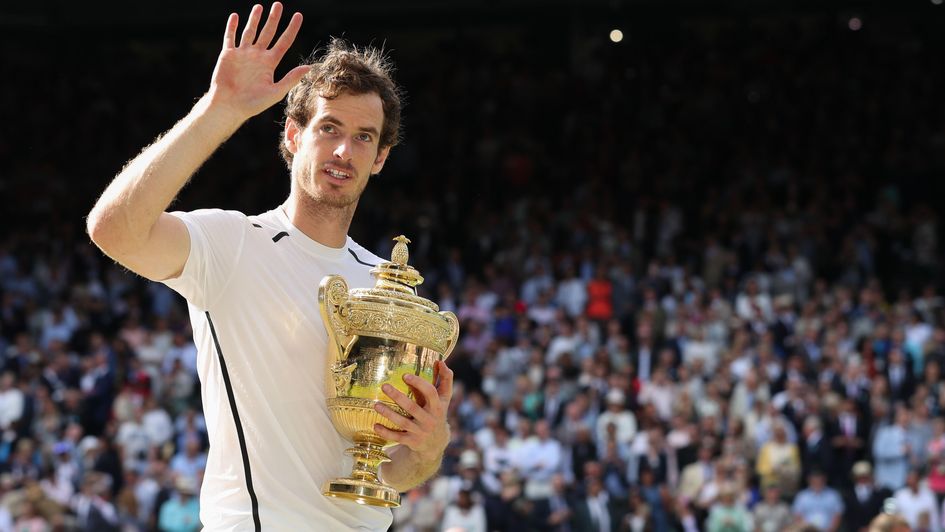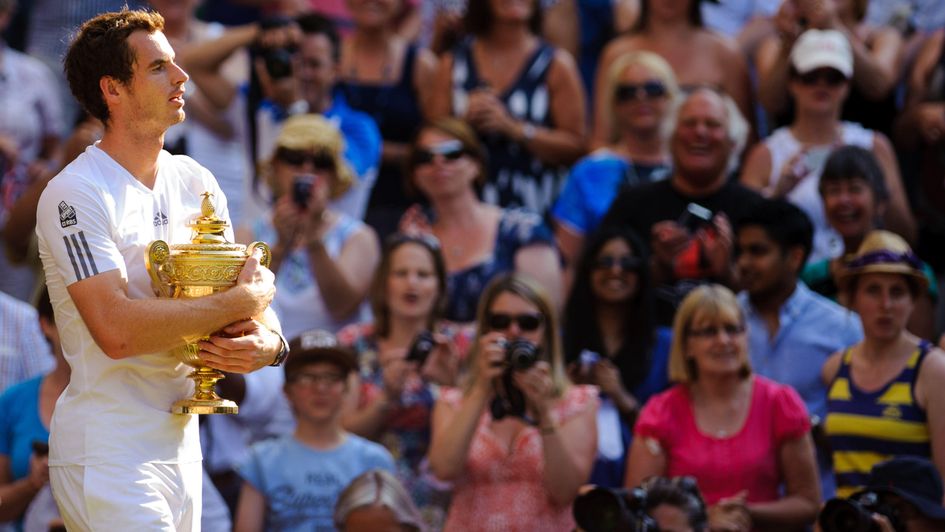It is sometimes asked why sportspeople don't bow out at the top.
The answer is obvious: to get there, the concept of leaving willingly has to be alien. Andy Murray could have had a proper farewell at Wimbledon had he given up sooner, but that is not the Murray way. Never has a British tennis player been so unwilling to accept that this is the end.
Even now, it isn't quite: Murray wants to play one final Olympics, in Paris. That desire alone ought to mean that he does. And while a Wimbledon farewell would have been satisfying, there's something fitting in the way he will finally exit, on his terms, in something comparatively low-key. It was on the courts of the All England Club that he finally broke through, but at London 2012, not at Wimbledon. The Olympic Games, which he conquered again in Brazil, are as much a part of his story as the grand slam for which he will most be remembered.
That roar 🔊@andy_murray bet you remember #London2012 like it was yesterday? 👀 https://t.co/mhnIwDKd2W pic.twitter.com/t5sJ2nqYEk
— Team GB (@TeamGB) July 27, 2022
One year after that first triumph in London, Murray returned to become the first British man to win the Wimbledon singles title since Fred Perry in 1936, the first Briton to win the singles since Virginia Wade in 1977. He'd already ended the grand slam hoodoo the previous September, beating Novak Djokovic in five sets in New York. But it was at Wimbledon, from losing the final in 2012 to winning it in 2013, that he cemented his status as a British sporting legend.
Andy Murray ended Great Britain's 77-year wait for a Gentlemen's Singles champion at #Wimbledon
— Wimbledon (@Wimbledon) June 30, 2023
Warning: you may get goosebumps ⚠️ pic.twitter.com/73I39CAlLC
It was never going to be easier than winning or almost winning the thing for this dour, unkempt Scotsman to win over the masses down in SW19. Murray made his debut a year after what would prove to be Tim Henman's final serious go at it, which ended at the quarter-finals. Henman Hill was by now established and so was Henman's reputation as a gallant, courteous nearly-man, himself unfortunate not to have been born at a different time.
Murray offered a stark and, for some, unwelcome contrast: at 18, he was fined for swearing at an umpire during a Davis Cup match, and though those outbursts would turn inward, there was an incongruousness about his appearance on the courts of lily-white Wimbledon, with its lily-white teeth, its strawberries and cream, its gentle laughter and polite applause.
His sense of humour, which has become one of the most beloved parts of his personality, at first didn't land. Murray has spoken of his regret at joking he'd 'support whoever England were playing against' in an interview alongside Henman, whose quintessential Englishness was never more stark. Murray was vilified and while it happened during the year Twitter was launched, you wonder how bad the fallout might have been had Twitter taken over.
Tim Henman has hailed Andy Murray's impact on British tennis after Murray's withdrawal from this year's #Wimbledon men's singles was confirmed earlier today 🙌#BBCTennis pic.twitter.com/ehGqAB0sML
— BBC Sport (@BBCSport) July 2, 2024
Thankfully, he had time; time not to put it right per se – it was a perfectly reasonable joke for a teenage Scotsman to make – but to win over the public with his tennis. Make no mistake, Murray's tennis was magnificent. It would be easy to lose sight of that in talking about his will to win, his refusal to let those four grand slam final defeats define him, and to miss one vital point about his game as it was technically: not perhaps the best at any one thing, but one of the next-best at everything, from a two-handed backhand to game management and a sense of angles and timing honed over years of hard work.
Perhaps though there is one shot we can point to which he did better than anyone, and it was this shot which would produce a moment that he'd found harder to imagine than three grand slam titles and two Olympic golds. When Murray lobbed David Goffin to win the Davis Cup for Great Britain, he gave us one shot, one moment, that sums him up better than anything else, from execution to aftermath.
Murray magic ends 79-year wait 🇬🇧🧙🏻♂️🏆@andy_murray guided Great Britain to a 10th #DavisCup title #OnThisDay in 2015
— Davis Cup (@DavisCup) November 29, 2020
The team talisman finished with an 11-0 record across the campaign! pic.twitter.com/1MqHg3104k
First came the inch-perfect shot before he collapsed to the ground, then was mobbed by his teammates. And in an instant, Murray realised that he had not shaken the hand of Goffin, so broke himself free to go and do the right thing. Only now could the celebrations begin, celebrations which Murray would describe as the most emotional of his career. 'I can't believe we did it,' he told the BBC.
Murray can be called one of, if not the greatest sportsperson in British history, simply on the strength of his sporting achievements. But he is so much more than that. When he spoke to ground staff the morning after winning Wimbledon for the first time, it was because he wanted to, not because he had to. When he corrected a reporter’s language ahead of a Wimbledon meeting with Sam Querrey, he did it because it was the right thing to do.
Already, he'd worked with Amelie Mauresmo and used an on-court interview to ask why exactly anyone would question him working with a female coach. Later, Serena Williams declared that 'we love Andy Murray' because 'he has spoken up for women's issues and women's rights, especially in tennis, for forever.'
When @andy_murray corrects a journalist's "casual sexism"https://t.co/u6z3lqf6H2 #Wimbledon pic.twitter.com/Jgj9tjifUd
— BBC News (UK) (@BBCNews) July 13, 2017
It's no wonder that when retirement tried to nab him in 2019, so many of those offering tributes were from the WTA Tour. Andrea Petkovic said 'when you think everything is equal, you still need men, especially successful men, to speak up for women'; Heather Watson that 'to have a guy fighting for women's rights is pretty cool'. Victoria Azarenka described him simply as 'the realest'.
There appears no pretence with Murray, no motivation beyond the pursuit of personal excellence and equality, on and off the court. That he found the former, in the era of the greatest players in the history of men’s tennis, is remarkable. That he used his success to elevate others is even more impressive.
The sport misses Roger Federer, it will soon miss Rafael Nadal, and then Novak Djokovic. But Murray, an intruder, in so many ways an outsider, found his way in – and tennis will miss him too. He beat them all to win what he won: Federer at London 2012, Djokovic at the US Open that same year and at Wimbledon in 2013, Nadal in three of the four finals they shared, including on clay.
For years to come he ought to be held as the gold standard for sportspeople. There has never been another like Andy Murray. Among his many gifts to British tennis is that there just might be one day, and they will have the 2012 US Open, 2013 and 2016 Wimbledon, 2012 and 2016 Olympic champion and Davis Cup winner to thank.
It's sometimes said that we're defined not by our successes but by our failures. How true that is of an elite sportsman like Murray, I'm not sure. But when he lost that Wimbledon final in 2012, to the darling of Centre Court in Federer, Murray asked Sue Barker for a moment before stepping up to the microphone, and what he said when he did seems the best way to acknowledge a fabulous career spent defying the odds.
"Right, I'm gonna try this, and it's not going to be easy."










